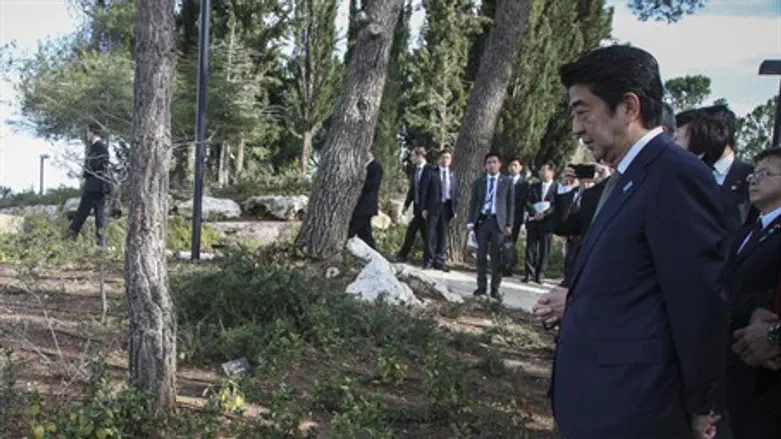
Japan is seeking to have Chiune Sugihara - widely termed the "Japanese Oskar Schindler" - recognized by the UN for his heroic actions during World War II, when he saved around 6,000 Jews from the genocidal Nazi regime.
In his post as Japanese consul to Lithuania during the war, Sugihara defied the orders of his superiors and gave out 2,139 visas to Jews fleeing certain death in the Holocaust.
Just this week the Japanese government chose several documents recording his actions - such as an original visa Sugihara issued and his communications with his superiors - in an application to have him added to UNESCO's Memory of the World Register.
Japan's National Committee at the UN body is to submit the application next March to have the records recognized officially.
In response to the application, Shingo Akatsuka, the mayor of Sugihara's hometown of Yaotsu in Gifu Prefecture, told Kyodo News that "we feel very happy. We want to convey the cruelty of war and the value of life to future generations through Sugihara’s humanitarian act."
Sugihara, who has been recognized by the Yad Vashem Holocaust Museum as a Righteous Gentile, selflessly sacrificed his own career by deciding to buck orders and write the visas for fleeing Jews by hand.
After making the heroic decision to take action, Sugihara spent his every hour writing as many visas as possible, continuing even after the consul was closed, and even as he left for Kaunas Railway Station to leave the country. Reportedly he threw blank visas with his seal and signature on them out of the train window to the crowds of Jewish refugees as he left.
Sugihara was forced to resign in 1947 from his role as a diplomat. His heroism wasn't recognized until 1967, when an attache to the Israeli Embassy in Tokyo located him. He was given numerous humanitarian awards, many after his death in 1986.
The year before he died, Sugihara said, "you want to know about my motivation, don't you? Well. It is the kind of sentiments anyone would have when he actually sees refugees face to face, begging with tears in their eyes. He just cannot help but sympathize with them. Among the refugees were the elderly and women."
“I knew that somebody would surely complain about me in the future. But, I myself thought this would be the right thing to do. There is nothing wrong in saving many people's lives.”